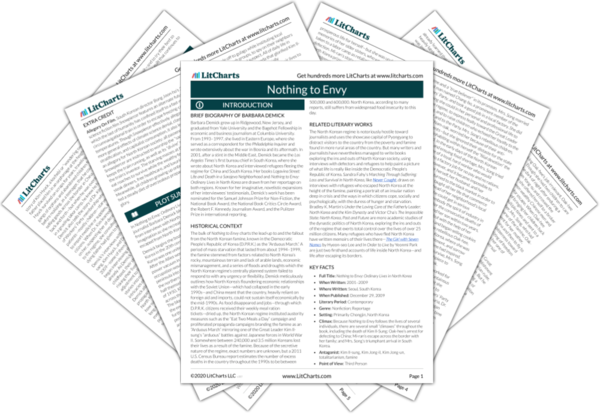By providing information about the lives of the six defectors whose live comprise the story of
Nothing to Envy,
Demick shows how the past continues to follow these individuals even as they grow, succeed, and put down roots in new communities. By showing how the interviewees purposefully remain connected to their pasts—by toiling to rescue their families, marrying other defectors, helping new refugees, or sharing their stories with the world—Demick shows how difficult it is for all of them to escape the pasts from which they’ve run.
